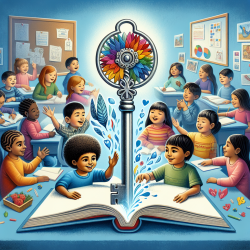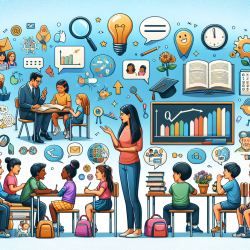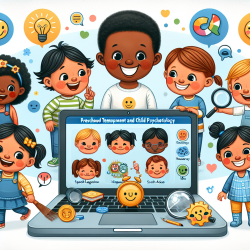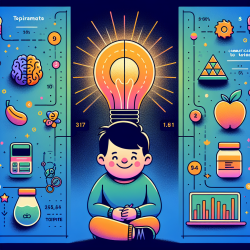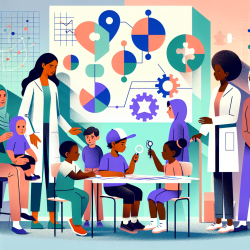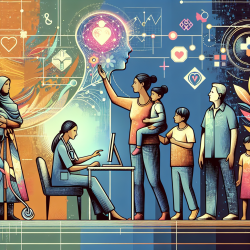As speech-language pathologists, we are often driven by a singular goal: to foster the best possible outcomes for children in our care. In our quest for data-driven and culturally responsive practices, the research article "First Nations and Métis Early Literacy and Language Enrichment Program" offers invaluable insights. This pilot intervention program, developed by Khan Communication Services, Inc., targets early literacy and language skills in First Nations and Métis children, addressing the readiness gap observed in these communities. The program's culturally adapted curriculum and classroom-based approach hold promise for educators and practitioners alike.
In the research, Khan and Paddick (2014) describe a program designed to enhance narrative language and phonological awareness among young Aboriginal students in Northern Alberta. Teachers and principals had noted that these children often started school less prepared to develop reading skills compared to their non-Aboriginal peers. The program aimed to ensure that all children, regardless of background, were equally prepared for literacy development.
The FNMI-ELLEP program focused on:
- Developing narrative language skills through storytelling, an integral part of many Aboriginal cultures.
- Enhancing phonological awareness, specifically rhyming skills, which are foundational for literacy.
Implementation involved a collaborative approach with teachers, who received training and ongoing support from speech-language pathologists. Key strategies included:
- Explicit instruction on listening and acting out stories.
- Using visuals, puppets, and props to engage students.
- Incorporating repetitive and multimodal learning experiences.
- Targeting phonological awareness through rhythm and movement activities.
Preliminary outcomes were promising. Children who participated in the program showed significant improvements in their narrative and phonological awareness skills. Teachers reported increased engagement and confidence among students, and a greater awareness of cultural and linguistic differences.
For practitioners looking to implement similar programs, the following steps are recommended:
- Collaborate with educators to integrate language enrichment activities into the classroom.
- Provide ongoing training and support to teachers, emphasizing the connection between program goals and curriculum expectations.
- Use culturally relevant materials and methods to engage students and support their learning.
- Collect and analyze data to measure program effectiveness and guide future improvements.
To read the original research paper, please follow this link: First Nations and Métis Early Literacy and Language Enrichment Program / Programme d'enrichissement précoce de littératie et du langage chez les Premières nations et les Métis.
By integrating the findings from this research into our practice, we can make a meaningful difference in the literacy outcomes of First Nations and Métis children. Let's continue to strive for data-driven, culturally responsive interventions that support every child's journey to literacy.
